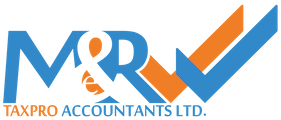Latest News
The federal government says targeted aid is coming for some businesses hit by closures as a second wave of COVID-19 hits parts of the country.
Finance Minister Chrystia Freeland, flanked by the prime minister and other cabinet colleagues, announced a combination of new and previously announced measures in Ottawa today.
“The difficult reality is that the health measures we are taking to contain COVID-19 mean there are some businesses that simply cannot operate at full capacity, and some are closed down by public health orders. These measures are to support those businesses and to provide a bridge for all of us to the full containment of the virus,” she said.
TORONTO, ON –After more than ten years advocating for the right to incorporate, the Ontario Real Estate Association (OREA) is proud to announce that as of today, Ontario REALTORS® will be permitted to operate their business through a personal real estate corporation (PREC). For Realtors who will benefit from a PREC, it can significantly lower their tax burden – helping them reinvest in their business and save for the future.
You or your employer(s) must submit a record of employment (ROE) for each job you had in the 52 weeks before the beginning of your CERB. We need your ROEs as soon as possible to determine if you qualify for EI benefits and how much you’ll receive.
For more information about your EI claim, including the number of weeks and the weekly amount you’ll receive, register for My Service Canada Account (MSCA).
If you received the CERB through Service Canada
In most cases, you do not need to apply for EI benefits. After you receive your last CERB payment, continue completing reports. We’ll automatically review your file and your ROE, then start a claim for EI regular benefits if you qualify. If you don’t qualify, you’ll be notified by mail.
The Canada Recovery Benefit (CRB) gives income support to employed and self-employed individuals who are directly affected by COVID-19 and are not entitled to Employment Insurance (EI) benefits. The CRB is administered by the Canada Revenue Agency (CRA).
If you are eligible for the CRB, you can receive $1,000 ($900 after taxes withheld) for a 2-week period.
If your situation continues past 2 weeks, you will need to apply again. You may apply up to a total of 13 eligibility periods (26 weeks) between September 27, 2020 and September 25, 2021.
The Canada Emergency Response Benefit (CERB) ends when you’ve received 28 weeks of benefits or on October 3, 2020, whichever comes first. For those who applied through the Canada Revenue Agency, the last four-week period for the CERB was August 30, 2020 through September 26, 2020. However, you can still apply for the CERB retroactively through CRA.
On July 17, 2020, the Canadian federal government announced the expansion and extension of the Canada Emergency Wage Subsidy (CEWS) program. Among the proposed changes, as of July 5, 2020, any business, charity and not-for-profit organization in Canada that has experienced a decline in “qualifying revenue” will be entitled to a subsidy. The program has also been extended to at least November 21, 2020.
The Government of Canada is taking immediate, significant and decisive action to support Canadians and businesses facing hardship as a result of the COVID-19 outbreak.
